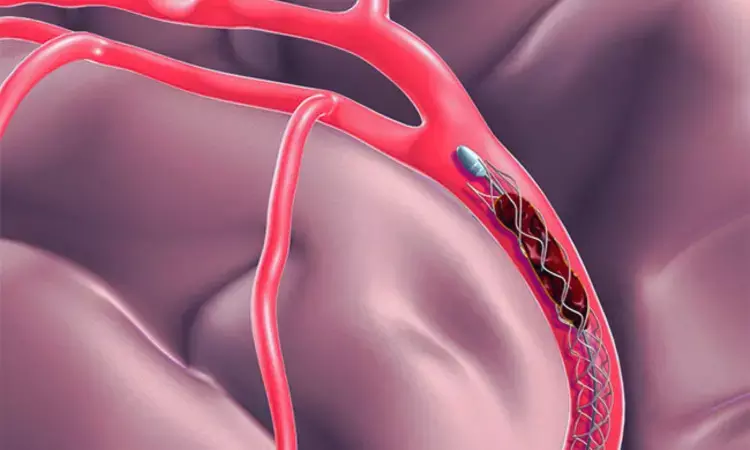- Home
- Medical news & Guidelines
- Anesthesiology
- Cardiology and CTVS
- Critical Care
- Dentistry
- Dermatology
- Diabetes and Endocrinology
- ENT
- Gastroenterology
- Medicine
- Nephrology
- Neurology
- Obstretics-Gynaecology
- Oncology
- Ophthalmology
- Orthopaedics
- Pediatrics-Neonatology
- Psychiatry
- Pulmonology
- Radiology
- Surgery
- Urology
- Laboratory Medicine
- Diet
- Nursing
- Paramedical
- Physiotherapy
- Health news
- Fact Check
- Bone Health Fact Check
- Brain Health Fact Check
- Cancer Related Fact Check
- Child Care Fact Check
- Dental and oral health fact check
- Diabetes and metabolic health fact check
- Diet and Nutrition Fact Check
- Eye and ENT Care Fact Check
- Fitness fact check
- Gut health fact check
- Heart health fact check
- Kidney health fact check
- Medical education fact check
- Men's health fact check
- Respiratory fact check
- Skin and hair care fact check
- Vaccine and Immunization fact check
- Women's health fact check
- AYUSH
- State News
- Andaman and Nicobar Islands
- Andhra Pradesh
- Arunachal Pradesh
- Assam
- Bihar
- Chandigarh
- Chattisgarh
- Dadra and Nagar Haveli
- Daman and Diu
- Delhi
- Goa
- Gujarat
- Haryana
- Himachal Pradesh
- Jammu & Kashmir
- Jharkhand
- Karnataka
- Kerala
- Ladakh
- Lakshadweep
- Madhya Pradesh
- Maharashtra
- Manipur
- Meghalaya
- Mizoram
- Nagaland
- Odisha
- Puducherry
- Punjab
- Rajasthan
- Sikkim
- Tamil Nadu
- Telangana
- Tripura
- Uttar Pradesh
- Uttrakhand
- West Bengal
- Medical Education
- Industry
Intra arterial tirofiban as rescue therapy during mechanical thrombectomy in stroke may improve recanalization rates

Tamil Nadu: Use of intra-arterial (IA) tirofiban with or without adjunct techniques as rescue therapy during mechanical thrombectomy (MT) in large vessel occlusion (LVO) improves recanalization rates without raising the risk of symptomatic haemorrhage, a recent study has shown. The findings were published online in the Journal of Clinical Interventional Radiology.
Stroke is an important cause of disability and morbidity affecting the productive life of an individual with a substantial socioeconomic impact. Acute ischemic stroke (AIS) due to LVO can be in situ occlusion due to underlying intracranial atherosclerotic disease (ICAD) or thromboembolism (cardiac-embolism/artery-to-artery embolism). Recanalizing the acutely occluded vessel as early as possible is the strongest predictor of good clinical outcomes.
Mechanical thrombectomy has become the standard of care in acute LVO since 2015. In the event of unsuccessful recanalization during MT, there are no established guidelines for rescue therapy. MT can cause plaque disruption and endothelial damage, resulting in subsequent platelet activation and occlusion of the initially recanalized vessel.
Tirofiban is approved for use in acute coronary syndrome by the U.S. Food and Drug Administration (FDA), a short-acting inhibitor of the glycoprotein IIb/IIIa receptor (GpIIb/IIIa). Tirofiban blocks platelet aggregation and subsequent thrombus formation. Karthikeyan Muthugounder Athiyappan, Department of Interventional Radiology, Kovai Medical Center and Hospital, Coimbatore, Tami Nadu, India, and colleagues aimed to investigate the safety profile and role of intra-arterial (IA) tirofiban as a rescue therapy in acute ischemic stroke (AIS) patients undergoing MT.
For this purpose, they conducted a retrospective study among AIS patients with LVO eligible for endovascular revascularization and in whom IA tirofiban is given as rescue therapy.
IA tirofiban at a dose of 0.4 μg/kg/min was administered through the microcatheter in the target vessel followed by intravenous (IV) infusion of 0.1 μg/kg/min if the target vessel shows reocclusion following initial recanalization, flow limiting or significant residual stenosis after thrombectomy, or requires balloon angioplasty or stenting. The study's primary safety measure was the incidence of symptomatic haemorrhage.
There were 82 patients in the study; 36 were in the tirofiban group, and 46 were in the non-tirofiban group.
The study led to the following findings:
- Immediate successful reperfusion was achieved in 86.1% of patients and 89% of patients in the tirofiban and non-tirofiban groups, respectively.
- 19.4 and 25% of patients in the tirofiban group required adjunct techniques of angioplasty and stenting, respectively.
- 2.7% of patients in the tirofiban group had a symptomatic haemorrhage, while 8.7% in the non-tirofiban group had symptomatic intracranial haemorrhage.
- On multinomial logistic regression, a history of transient ischemic attack, watershed infarct pattern, and truncal occlusion predicted the usage of IA tirofiban during mechanical thrombectomy.
"The findings revealed that using IA tirofiban with or without other adjunct techniques as rescue therapy during MT in LVO improved recanalization rates without raising symptomatic haemorrhage risk," the researchers concluded.
Reference:
The study titled, "Safety Profile of Intra-Arterial Tirofiban as a Rescue Therapy during Mechanical Thrombectomy in Acute Ischemic Stroke," was published online in the Journal of Clinical Interventional Radiology. DOI: 10.1055/s-0043-1775981
Dr Kamal Kant Kohli-MBBS, DTCD- a chest specialist with more than 30 years of practice and a flair for writing clinical articles, Dr Kamal Kant Kohli joined Medical Dialogues as a Chief Editor of Medical News. Besides writing articles, as an editor, he proofreads and verifies all the medical content published on Medical Dialogues including those coming from journals, studies,medical conferences,guidelines etc. Email: drkohli@medicaldialogues.in. Contact no. 011-43720751


